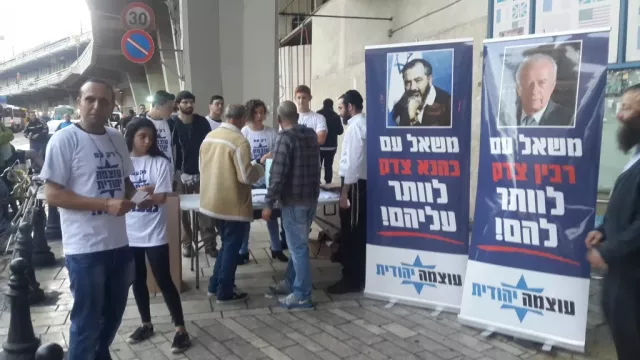On November 5th, 1990, a tragic event shook the Israeli political landscape when Rabbi Meir Kahane, aged 58, met his untimely demise at the hands of Egyptian-American El Sayyid Nosair. The assassination occurred in a Manhattan hotel, where Kahane had been addressing a gathering primarily comprised of Orthodox Jews.
Rabbi Meir Kahane's journey in Israeli politics began when he was elected to the Knesset in 1984, leading the Kach party. However, his political career faced a significant setback in 1985 when the Knesset passed a Basic Law that prohibited the participation of political parties inciting racism. As a result, Kach was disqualified from running in the 1988 election, citing accusations of being "racist," "Nazi-like," and "undemocratic." Kahane would constantly tell his supporters that he didn’t “want to kill Arabs; I just want them to live happily elsewhere.”
100% correct
— T@)_ (@malachovsky) October 29, 2023
Rabbi Meir Kahane pic.twitter.com/BZElr4dpIZ
Born in August 1932 in New York, Kahane was closely associated with Betar, the Revisionist Zionist youth group, during his formative years. He pursued higher education at Brooklyn College and was ordained as a rabbi in 1957 after studying at the Mir Yeshiva. Following his ordination, he led a congregation in Queens until 1960.
In 1968, Rabbi Kahane founded the Jewish Defense League, an organization that defied prevailing stereotypes of Jewish vulnerability. The JDL organized "anti-mugger" patrols to ensure the safety of Jewish educators in historically black neighborhoods, often armed with baseball bats. While the group also provided training in karate and riflery to rabbinical students and advocated for the rights of Soviet Jews, it resorted to extreme measures, including bombing Soviet offices in the United States.
Kahane's involvement in criminal activities became evident when he was convicted of conspiring to manufacture bombs, resulting in a suspended five-year prison sentence in 1971. It was the same year that he relocated to Israel and established the Kach party. His legal troubles continued, leading to a one-year imprisonment for violating his probation.
28 years ago today, a Jewish right-wing extremist assassinated Prime Minister Rabin and got what he wanted: to stop an accelerating peace process. This is my favorite photo of him, with his friend King Hussein of
— Ami Dar (@AmiDar) November 4, 2023
Jordan. When brave people have a will, there's a way. pic.twitter.com/92LTHJe3Vl
Interestingly, the date of Kahane's assassination holds historical significance, as it was exactly four years later, on November 4th, when Israeli Prime Minister Yitzhak Rabin met a tragic end. Rabin, a figure distinctively opposed in political ideology to Kahane, was assassinated at a peace rally held in Tel Aviv. Rabin's legacy in Israeli history was characterized by his prominent role in various aspects of the nation's development.
Serving as the fifth Prime Minister of Israel, Rabin held office during two terms, from 1974 to 1977 and from 1992 until his assassination. He is renowned for his instrumental role in unifying Jerusalem under Israeli sovereignty during the Six-Day War, a stark contrast to his later pursuit of peace with former Arab adversaries.
Following his re-election in 1992, members of the Rabin government engaged in clandestine negotiations with the Palestine Liberation Organization (PLO), ultimately leading to the Oslo Agreements. Rabin further solidified his commitment to peace by forging a historic treaty with King Hussein of Jordan in 1994. For their remarkable efforts in promoting peace in the Middle East, Rabin, Shimon Peres, and Yasser Arafat were jointly awarded the Nobel Peace Prize in the same year.


